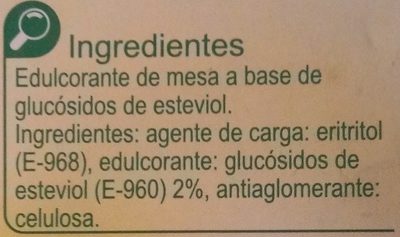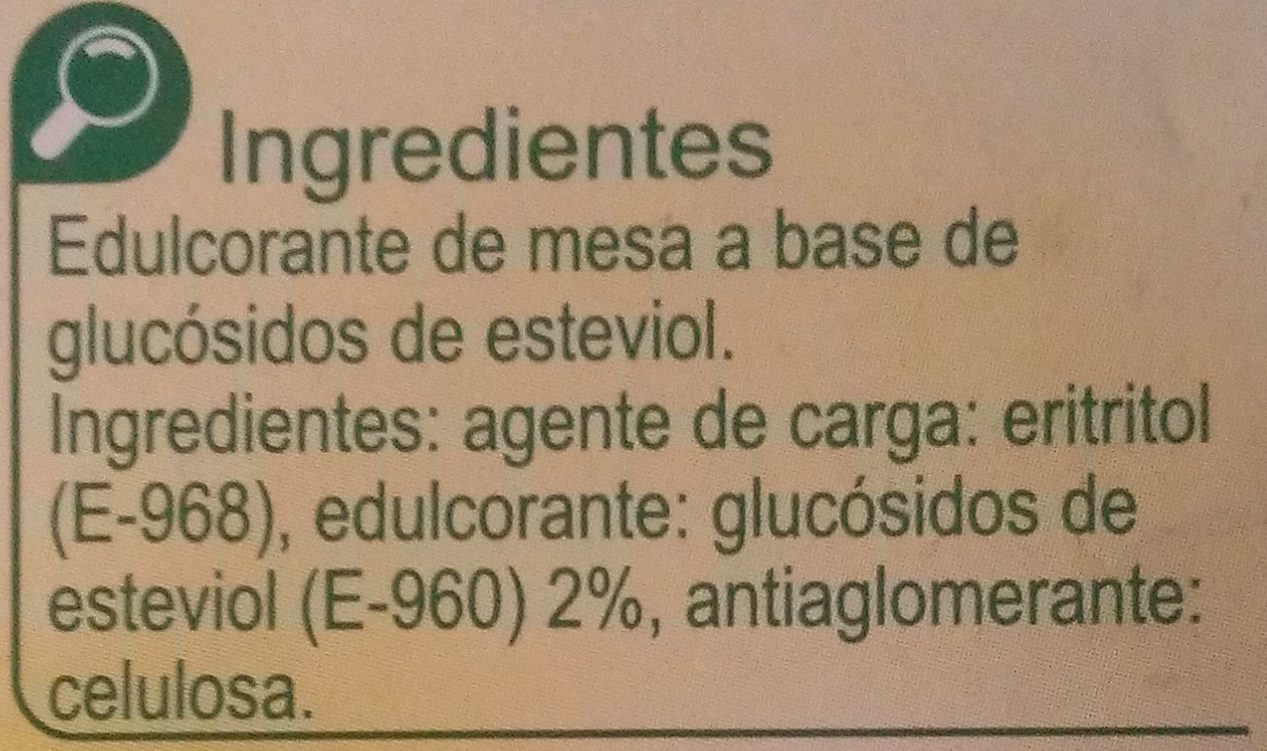Extracto de Stevia - Carrefour - 40 g
Aquesta pàgina del producte no està completa. Podeu ajudar a completar-la editant-la i afegint-hi més dades a partir de les fotos ja disponibles, o fent-ne més amb l'aplicació de androide o iPhone / iPad. Gràcies!
×
Codi de barres: 3560070810543 (EAN / EAN-13)
Nom comú: Edulcorante de mesa a base de glucósidos de esteviol
Quantitat: 40 g
Empaquetament: en:Box, en:container
Marques: Carrefour
Categories: Edulcorants, Additius alimentaris, en:Sugar substitutes, en:Tabletop sweeteners
Botigues: Carrefour
Països on es va vendre: Espanya
Matching with your preferences
Entorn
Empaquetament
Transport
Report a problem
Fonts de dades
Producte afegit per openfoodfacts-contributors
Última modificació de la pàgina del producte per packbot.
La pàgina del producte, també editada per anonymousgeek, kiliweb, maylord, yuka.WjVnRUc2OG1yZjRheC9BQnpFUHpxOTlFMkpxUVIxTzRBZW9XSWc9PQ.








